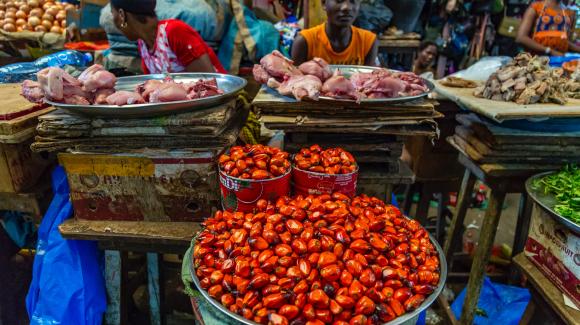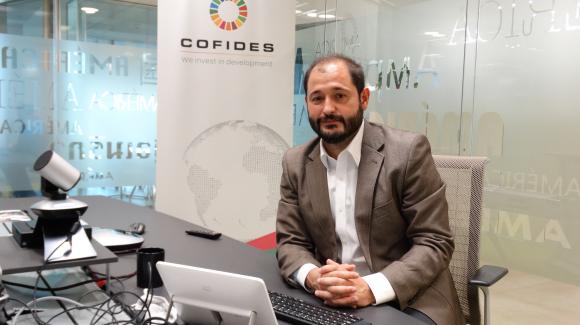Renewable Energy Program for Sub-Saharan Africa
Indirect management of international institutions’ budgets to achieve shared goals is one of the primary capacities developed by the company since it was accredited by the European Union (EU) to support development projects in host countries and by the Green Climate Fund to engage in climate finance.
One of the programmes that most accurately reflects COFIDES’s recent activity was formalised in 2020. Under the EU’s External Investment Plan (EIP), COFIDES and Spain’s international cooperation for development agency AECID jointly set up the Renewable Energy Program for Sub-Saharan Africa. The program merited EU support in the form of a guarantee issued by the European Sustainable Development Fund (ESDF), the EIP’s financial arm. Such backing s tantamount to full acknowledgement of the company’s capacity to coordinate with public institutions and to help the EU structure and manage its participation in the program, designed to meet a pressing need in most Sub-Saharan African countries. José Carlos Villena, Head of COFIDES’s Partnerships for Development Division, contends that ‘implementation and management of this type of investment programmes demand intense preliminary work prior to launching the call to select projects. It is not only a matter of meeting technical and financial requirements, but of identifying a sound project that can attract private sector interest. Implementing the Renewable Energy for Sub-Saharan Africa Program meant rising to a sizeable challenge with the medium-term goal of proposing similar but more ambitious programs, and of gaining the experience required to maintain this line of work with other international bodies’.
"We want to scale-up this type of operations in the medium term to help meet the region’s vast needs"
José Carlos Villena, Head of COFIDES’s Partnerships for Development Division
The Renewables Program aims to support renewable, off-grid and mini-grid power generation in areas of Sub-Saharan Africa lacking access to the electricity grid.
More specifically, the program focuses on rural or peri-urban areas with no power supply where the productive use of energy may have a substantial impact on sustainable development. José Carlos Villena claims that ‘access to electric power is a key to economic and social development in low-income areas, for improving household standards of living and health and affording access to more efficient technologies raises productivity and creates direct jobs, the two factors that help break out of the poverty cycle’.
In light of the risk inherent in such operations, seldom supported by conventional private finance, public institutions play a key role. A number of institutional actors participate in this program, which aims to encourage private sector participation. Thanks to the EU’s guarantee, the Program has mobilised M€28 from FONPRODE, managed by the country’s cooperation for development agency, to contribute to project subordinated debt, thereby lowering senior debt risk. The volume of resources allocated to the program is expected to suffice for approximately four projects.
A public call for proposals was launched in 2020 to identify projects that would potentially meet program requirements. The result (over 150 proposals received) afforded further proof of the need to continue to introduce and consolidate the use of innovative instruments to finance projects able to impact host country development. The short list of preselected projects has since been published. Project selection and approval for program financing will be forthcoming in 2021.
"We want to apply our African experience in coordinating with the EU and the GCF in the coming decade"
José Carlos Villena, Head of COFIDES’s Partnerships for Development Division
‘We’re very satisfied about how the process has been handled’ reports COFIDES Division Head, according to whom ‘we should stress that this is a pilot programme that we hope to be able to scale up in the medium term in light of the region’s vast needs and private sector interest in this type of operations. We’re also considering involving the GCF, given the abatement associated with the type of projects we’re supporting’.
The EU’s External Investment Plan forms part of COFIDES’s strategy to contribute to the development it has been supporting for over 30 years. It affects the company’s role as mediator in establishing partnerships with public and private actors to foster sustainability, development, access to clean energy and poverty reduction in keeping with the Sustainable Development Goals that inform this proposal.
José Carlos Villena explains that ‘this program is important not only because it means installing off-/mini-grid renewable power generation, but because it does so in Sub-Saharan Africa, one of the regions where our presence is lightest and where we want to apply our experience in coordinating with the EU and the GCF in the decade to come’
*This publication is part of the COFIDES' 2020 Activity and Sustainability Report.









